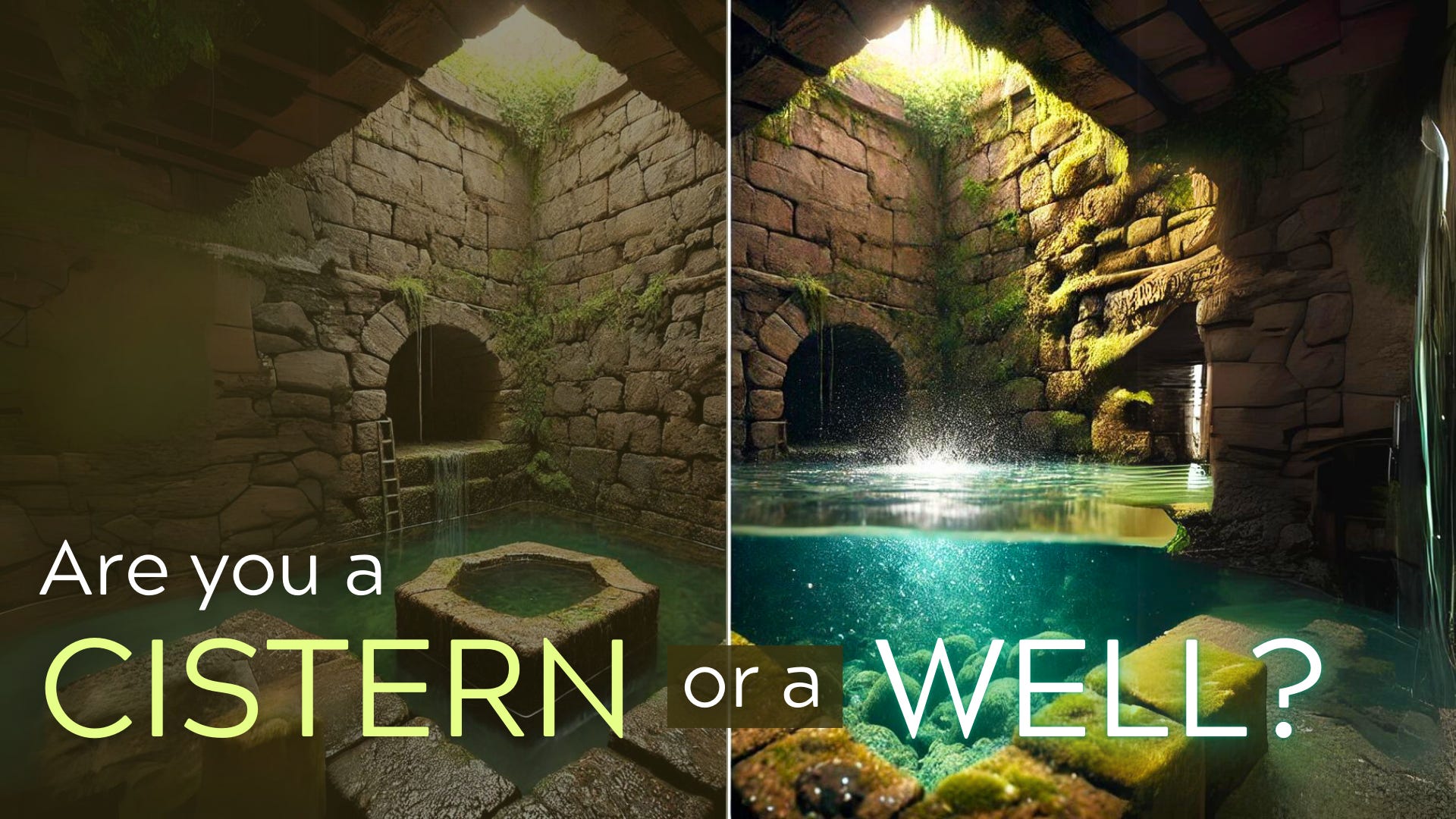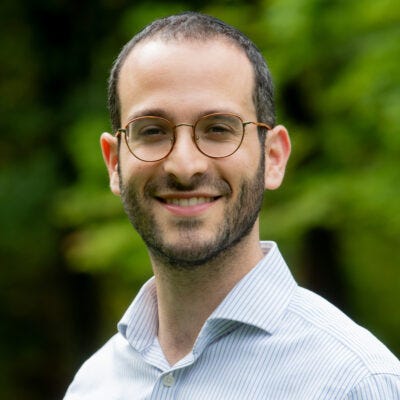Are You Marriage Material?
If you're asking, you're ahead of the curve.
This week’s contributor to our LIfe Advice series is my dear friend for almost the better part of two decades, Rabbi Moshe Friedman, a teacher, rapper, spoken word artist, video essayist, and author. In short, he loves taking deep Jewish ideas and finding every possible way of expressing them beautifully. He lives with his wife and four children in Israel. Check out the bottom of this post to find links to his unique and spectacular work.
Question:
I’m in my late twenties, and a lot of my friends are getting married. I always thought I would just know when is the right time to settle down and have a family. But frankly, I have no clue if I am ready to get married yet. How will I know when I am ready?
A rare few among us are blessed with intuitions about major life decisions. I grew up with one kid who knew she wanted to be a doctor from the age of 11. Meanwhile, the vast majority of us are still trying to figure out the perfect career choice at age of thirty five.
The same is true with knowing when you’re ready to get married. One friend described to me the exact moment that it hit him. He was enjoying a meal at a family friend’s Shabbat table, when a thought popped into his head:
“I don’t want to be a guest at someone else’s table — I want to be the host!”
Perhaps that feeling resonates with you, but in all honesty, it may have never crossed your mind. For those who haven’t been struck with the intuition yet, there may be a more reasoned way to decide whether it’s time to plant those roots.
To make things simple, the process can be boiled down to one question: are you a cistern, or are you a well?
The Zohar, the ancient, definitive text on kabbalah, makes a distinction between childhood and adulthood based on the following verse in Proverbs:
"Drink water from your cistern, running water from your well.”
What on earth does this poetic phrase have to do with one’s level of maturity?
I’m glad you asked…
In antiquity, people relied upon two sources for their water supply. The first was a cistern, which is a fancy name for a reinforced hole in the ground. People would wait for rainwater to fill the cistern, and then they could draw water. The second source was a well, which required a much deeper hole to access fresh running water underneath the earth’s surface.
A cistern is simple and effective. There’s only one problem: you’ve got to wait for it to rain. Once the pit is empty, you must rely upon an external source to replenish it. A well, on the other hand, requires immense effort. A person can dig thirty or forty feet into the ground without seeing so much as a drop of moisture. But once you hit that vein of water coursing through the earth, then you have access to a seemingly endless supply.
The Zohar points out for us: isn’t this a powerful metaphor for the difference between childhood and adulthood?
A teacher of mine once said that the definition of a five-year-old is that he’ll wake up an entire city because he wants a glass of water. Children have constant needs but are rarely able to satisfy them on their own. They need someone else to feed them, to remind them to bathe once in a while, and to help pull them out of their whiny or negative moods.
In other words, children are a cistern, waiting for someone else’s rainwater to fill them up.
But an adult is defined as someone who can, for the most part, satisfy his or her own needs. Adults pay for their own things. They arrange their own doctor’s appointments. And they’re usually pretty good at knowing how to cheer themselves up (although we shouldn’t be ashamed to know when to reach out to a friend for help sometimes).
Adults put in hard work and effort, and they reap the benefits that they themselves have earned. That’s why an adult is a well — a deep reservoir of self-replenishing water.
Thus the Zohar points out that one may drink out of a cistern, but that’s only if there’s water in it. A well, however, brings forth running water, because it fills itself.
Well that settles it, doesn’t it? If you can do your own laundry and pay for your own meals, then surely you’re ready for marriage! I think we can agree that this simple equation rings a bit hollow. There is still one more concept we need to develop to reach a satisfying conclusion.
One of the more recent Jewish sages noted that almost all the major figures in the Torah met their spouses at a well. Isaac and Rebeccah, Jacob and Rachel, Moses and Tzipporah. There seems to be an inherent link between wells and weddings. Based on everything we’ve said until now, this is no accident.
Consider what happens at each of these encounters. Rebeccah sees Eliezer, Isaac’s messenger, and offers water to him and his camels. Jacob sees Rachel and lifts a stone off of a well to nourish her flock and other surrounding flocks. Moses sees Tzipporah and drives away some evildoers who were preventing her from drawing water at the well. In every case, one person is giving water to their future mate.
Here’s what the symbolism means. Until now we’ve made a simple distinction between those who can’t take care of themselves and those who can. Children are dependent — they rely on others to solve their problems, whereas adults are independent — they can solve their own problems.
But there’s one more stage of maturity, and that’s called interdependence — the ability not just to take care of my own needs, but also to be concerned of the needs of others. A well’s resources are so vast that they can supply water for much more than a single person. Similarly, a fully developed adult can take care of him- or herself, and still have enough energy to take care of others.
We’re not just talking about physical sustenance either. A father with deep reserves of emotional resources can buoy the moods of his wife and kids on a long and boring car ride. A caring woman can listen to her friend’s personal issues and provide deep empathy and support. These people are true wells.
If a person possesses this capacity, then our sages say this is the greatest sign that the time is right to start building a family. That’s why my friend at the Shabbat table knew it was the right time — he was ready to provide a warm and hospitable environment for others.
Marriage comes with all kinds of complexities. Not least among them is figuring out the right person to marry! But you don’t have to wait for that lightning bolt moment to know for certain that you will be a good husband/wife and father/mother. Instead, look to the relationships that you already have. If you find that you’re the type of person that co-workers come to with problems, or that you’re constantly thinking of the needs of an elderly neighbor, or simply that you like to organize pizza night for your friends — then that’s a pretty good indication that you’ve hit running well water. And when you’ve got enough sustenance to go around, then there’s nothing more fulfilling than sharing it to develop the deepest relationships possible.
Rabbi Moshe Friedman is a teacher, rapper, spoken word artist, video essayist, and author.
In short, he loves taking deep Jewish ideas and finding every possible way of expressing them beautifully. He lives with his wife and four children in Israel.
Here are some links to get you started on his world of Torah-powered wisdom and creativity:
YouTube video essays at www.youtube.com/@menschsense1
Here’s one example👇
Reb Moshe’s Spoken word and rap music can be found here. And here’s one great example that we love👇
Many of his lectures on Jewish wisdom can be found here: youtube.com/@rabbimoshefriedman — here’s one great example👇






